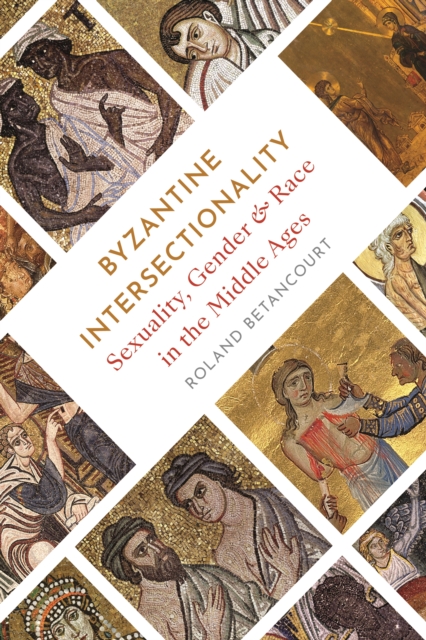
Byzantine Intersectionality : Sexuality, Gender, and Race in the Middle Ages
Betancourt, Roland More by this author...£30.00Out of stock
Please contact the shop to check availability
- History
- Things & Ideas
Intersectionality, a term coined in 1989, is rapidly increasing in importance within the academy, as well as in broader civic conversations. It describes the study of overlapping or intersecting social identities such as race, gender, ethnicity, nationality, and sexual orientation alongside related systems of oppression, domination, and discrimination. Together, these frameworks are used to understand how systematic injustice or social inequality occurs.
In this book, Roland Betancourt examines the presence of marginalized identities and intersectionality in the medieval era. He reveals the fascinating, little-examined conversations in medieval thought and visual culture around matters of sexual and reproductive consent, bullying, non-monogamous marriages, homosocial and homoerotic relationships, trans and non-binary gender identifications, representations of disability, and the oppression of minorities. In contrast to contemporary expectations of the medieval world, this book looks at these problems from the Byzantine Empire and its neighbors in the eastern mediterranean through sources ranging from late antiquity and early Christianity up to the early modern period. In each of five chapters, Betancourt provides short, carefully scaled narratives used to illuminate nuanced and surprising takes on now-familiar subjects by medieval thinkers and artists.
For example, Betancourt examines depictions of sexual consent in images of the Virgin; the origins of sexual shaming and bullying in the story of Empress Theodora; early beginnings of trans history as told in the lives of saints who lived portions of their lives within different genders; and the ways in which medieval authors understood and depicted disabilities. Deeply researched, this is a groundbreaking new look at medieval culture for a new generation of scholars.